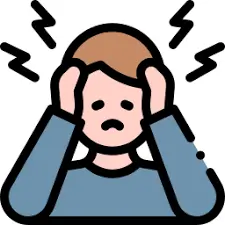Depression Treatment San Diego: Find Help & Start Recovery


Do you feel depressed, lost, or overwhelmed? You don’t have to feel alone. Depression is a serious but manageable mental illness, and gaining more knowledge on depression symptoms & treatment is your starting point in beating it. If your looking for depression treatment San Diego, you can reach out to Ana Lopez Hopkins MSN, PMHNP-BC so that you’ll be steered towards becoming happy once again.
Depression is not sadness for a couple of days. It’s like having a cloud of sadness follow you everywhere you go, and everything is difficult and dull. Try to picture yourself walking in thick mud – that’s what depression can do to life. Depression is a very serious disease that may affect the way you think, feel, and deal with everyday life.
If you’re not certain if you might be depressed, look for these signs and symptoms of depression & warning signs for treatment:
Learning about these depression signs and treatments is a large leap towards recovery.
“Depression symptoms interfere with day-to-day functioning and cause significant distress for the person experiencing them.”
Ana Lopez Hopkins is a dedicated Mental Health Practitioner with training in depression symptoms & treatment. Ana helps patients overcome depression. She is board certified and deeply experienced with her master’s degree in Psychiatric-Mental Health care. Ana recognizes that everyone experiences depression differently.
Ana is special because she’s a caring, non-judgmental therapist. She knows it’s scary to come in for depression therapy. So she creates a warm, comfortable environment where you feel safe sharing yourself without worry of criticism. She wants to work with you, not just treat you as another patient.
Ana believes that each case is unique and takes that approach when treating depression. She takes the time to:
Depending on your needs, Ana might recommend:
There are many reasons to choose Ana. Here are a few:
Depression feels suffocating, but remember this: seeking help is not a sign of weakness, it’s a sign of strength. Ana Lopez Hopkins is dedicated to walking you through the torturous journey of depression. You don’t have to go through it alone.
Are You Ready to Start Your Path to Healing?
If you find yourself in San Diego and fighting depression, call upon Ana Lopez Hopkins. Your path to brighter days starts with a first step.